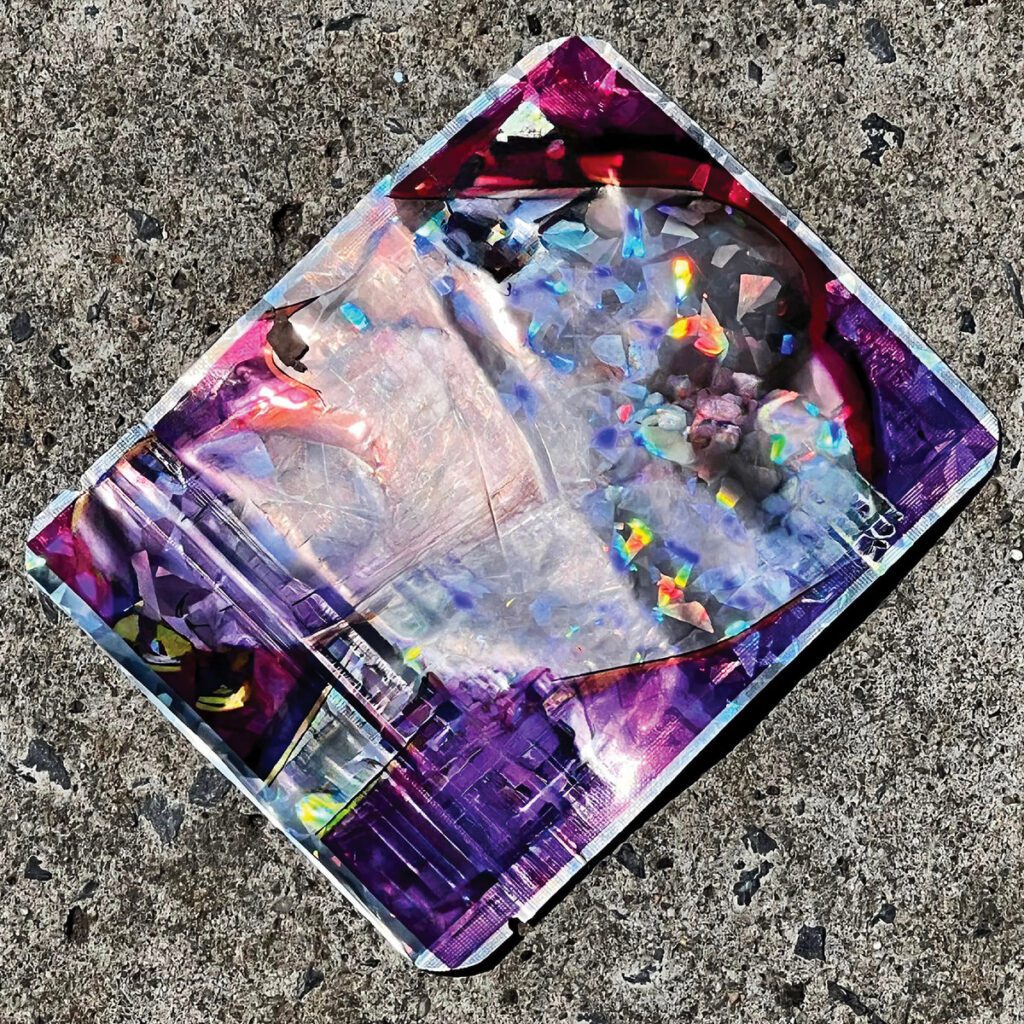Body Meπa is a powerhouse ensemble that’s lacking in a weak link. Their sound has some affinities with post-rock but the band prefers to describe their thing as “New York City body music.” While conducive to the movement of torsos and limbs, the collective energies soar from a rock framework, thoroughly unburdened by cliché. Available October 25 on vinyl (limited clear with a green tint, unlimited black), compact disc, and digital via Hausu Mountain, Body Meπa’s second full-length Prayer in Dub takes its place amongst the best records of 2024.
Body Meπa features Grey McMurray (Sō Percussion, Tyondai Braxton, John Cale, Colin Stetson) and Sasha Frere-Jones (UI, Loren Mazzacane Connors, Calvinist) on guitars, Melvin Gibbs (Defunkt, Power Tools, Rollins Band, Harriet Tubman) on bass, and Greg Fox (Teeth Mountain, Guardian Alien, Fox Millions Duo, Colin Stetson).
While many balk at the usage of term outside of the late 1960s-early ’70s, supergroup is a fitting way to describe Body Meπa. In short, supergroups were/are aggregations formed by individuals already well-known, and in many cases renowned for their output, and most likely in a band context. The original supergroup impulse was essentially doomed by general arrogance and individual egos; notorious as one-and-done affairs when cutting records, supergroups are often scorned as part of a larger takedown of the rockist impulse.
And so it makes sense that some contemporary listeners would disdain the supergroup concept and that pertinent bands on the current scene might seek distance from the descriptor. It would be no surprise if this was the case with Body Meπa, as their ensemble thrust is unfettered by the drag downs of ego, and Prayer in Dub extends and expands upon the quality of their debut, The Work Is Slow, released in 2021, also by Hausu Mountain.
Hell, in reviewing The Work Is Slow, I made a point of kicking the supergroup label to the curb. Ruminating upon it here has more to do with how Body Meπa avoids the designation’s failures as they continue their exploration of the post-rock realm, therefore executing a categorical shift. In the manner of numerous post-rock outfits, there are no vocals, but instead of ball hog bluster and the wanking of yore there is an emphasis on precision, transcending mere tightness, and cyclical energies.
The debut hit the ear as unifying the mid-’80s SST aesthetic with the budding sounds of post-rock as heard in the ’90s on such labels as Thrill Jockey. Crucially, the blend was subtle, and so it is with Prayer in Dub. Perhaps not as inclined toward extended duration as on The Work Is Slow, they still open their latest with consecutive tracks, “Etel” and “Adnan,” that break the eight minute mark, and drop “Scout,” which rolls beyond 16 minutes, onto side two.
“Etel” is powerful in its forward motion but choose an enveloping, gorgeous sweep over standard rock heaviness. The all-in approach builds to a magnificent intensity that simmers down and rolls right into “Adnan,” which is where the methodical repetition flourishes (calling them grooves sells them short) as part of another glorious ascent. “Welcome” does play around with a little rock thud, but briefly as it flows directly (no break) into the psychedelic guitar soloing showcase that is “Deborah.” Finally, there is a fadeout.
“Stones” delivers a slow rise-up into another psych-tinged maelstrom that just as quickly dissipates ahead of “Scout,” where Fox gets off mightily and Gibbs lays down some fabulous bottom end. The interweaving of the guitars is delightful as the piece rolls to its knockout conclusion. “Goodbye” is, you guessed it, Prayer in Dub’s final track, and it’s ore meditative but still very much alive with group interplay. The album solidifies Body Meπa as boundary pushing post-rock supergroup of the highest rank.
GRADED ON A CURVE:
A
